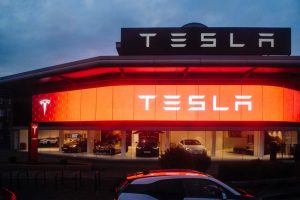Tesla recently announced plans to replace Salesforce with a proprietary Customer Relationship Management (CRM) system it calls the “Tesla Operating System” say insider sources.
The company has initiated using its new system although the shift away from Salesforce is not yet complete. Insiders claim they foresee the transition to be finished soon with some salespeople expressing enthusiasm for the electric car-maker’s new CRM.
The company’s decision to create its own solution is aligned with their desire to implement a vertically integrated system and to create their own software suite to handle internal functions instead of relying on third-party technology.
Salespeople at the company have been using Salesforce to record customer data, particularly information regarding interactions with existing and potential customers and customer orders. The decision to develop their own CRM follows outside pressure directed towards Tesla CEO Elon Musk to create proprietary software in the areas where they can do so. The company currently uses its own software in its service centers and vehicle assembly factory.
Although a fair number of users have referred to the software as “pretty slick”, persistent problems have been uncovered. Overall, however, the thought is that the new CRM system will be “ less cumbersome” than Salesforce.
Tesla’s measures towards vertical integration bring both the good and the bad. Creating capabilities to deal with both external and internal functions is costly, especially for a company that lacks the huge cash reserves that traditional automakers typically hold. This, in addition to the company’s history of losing money poses a risk to the car maker. Moreover, the company has been struggling to lower wait times at their service centers.
Fortunately, a recent survey has revealed that Tesla’s decisions to manage their own stores while building a network of charging stations have caught and held the attention of the public, leading to increased customer satisfaction.
Tesla is not alone in their decision to abandon Salesforce. A handful of reasons known to cause users to switch away from Salesforce include the inability to sell through Salesforce given the CRM is focused on prospects not customers, its high cost, expensive and time-consuming integrations, and the lack of a complete view of customers.
























